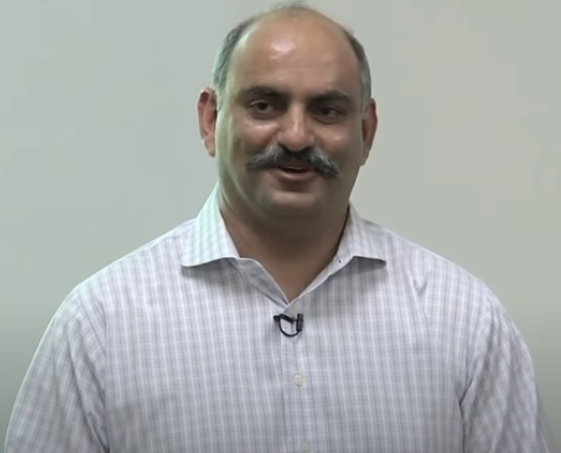
“Compound Interest is the 8th wonder of the world. He who understands it, earns it; he who doesn’t, pays it.” — Albert Einstein
A simple story As the tale goes, the king was so impressed with the game of chess that he soon became an addicted player. He offered the inventor of the game any reward he desired. The inventor said, “All i want is for you to put one grain of rice on the first square and then double the grains on the next square and keep doubling till the last square.”
The king thought the guy was crazy. He was prepared to give him so much more and all he wanted was some grains of rice.

Thats about 18,446,744,073,709,551,615 grains of rice. Equivalent to 461,168,602,000 metric tons that equivalent to US$300 trillion at current prices(Nov 25, 2016). Thats entire wealth of the planet.
# Notes
-
Invest in business where people would pay money upfront.
-
Split your time into two buckets
- Hyperactive bucket for day job and other works
- No hyperactive bucket for investing, where you will be reading and waiting.
-
Invest, If you have fortitude to buy something you never heard and their stock prices have never moved for a long time. You have to be a kind of person who would love to watch the paint dry for days months years.
-
Dont look at companies where there are already 20-30 analysts following. By looking at their reports you will know there is no 5x or 10x. That’s the case with 1000 largest businesses in US, forget about them. So if company is fortune 500 or s&p 500, we are done. Go fishing where the fishes are.
-
Overtime almost all moats erode, all companies looses their competitive advantages.
-
Spend time on what energies you and decrease time on what doesn’t energies you.
-
High risk & Uncertainty : Usually businesses with low uncertainty tend to be fully priced, they almost become like bonds. Low risk and high uncertainty is a wonderful combination. Risk is the potential for capital loss, while uncertainty is a wide range of possible outcomes. When the market gets confused between risk and uncertainty, it is time to profit handsomely from that confusion.
-
Protect your downside, upside will take care of itself.
-
Patience and decisiveness need to go together in investing.
-
Recurring Revenue Streams (RRS) is the most important thing in a business. This is the Holy Grail to business.
VLCC Industry scenario : VLCC(very large crude carriers) are big oil tankers. VLCC spot prices range from 250k. To break-even they need to make 10k, all companies start to scrape and get money from steel. One needs to remember that it will take 2-3 years to build a VLCC. So all the companies scrape at the same tome and build shop at the same time. They give orders when spot prices are at 80k.
- Tankers have a life of 20 years. They will be scrapped if business is booming or just let it run in down time.
- It takes two years to make new tankers.
- IMO(international Maritime organization) governs the design and engines what tankers should use. Next change is at 2030 that’s 10yrs from now. If tanker companies makes a change now that’s a big risk, so they won’t make a change and will continue to use the existing ships.
- These oil ships are not so environmental friendly ones.
During a meeting with Charlie Munger had said “If an investor just did three things, the end results would be vastly better than the rest.”
- Look at what other great minds are doing
- Look at the cannibals(look at businesses that are buying back their huge stocks as they are eating themselves away)
- Carefully study spinoffs
Charlie munger said to Mohnish “Temples and churches make you repeat stuff because as you shout it out, you pound it in”.
Charlie munger is successful because he is rational not because of he is intelligent.
# The Golden Rules
-
Start saving very early in life. Early 20s.
-
Maximize use of tax-advantaged accounts. Employer match is icing on the cake.
-
ALWAYS rollover to an IRA when you change jobs.
-
NEVER borrow against the 401(k).
-
Stick to low cost index funds.
-
Do not dance in and out of funds.
-
Play the game for 4-5 decades.
-
If you are investing in ETF funds, look for funds with low expense ratio(around 0.04 - 0.09)
# Mohnish Inspirations
Take up one idea. Make that one idea your life - think of it, dream of it, live on that idea. Let the brain, muscles, nerves, every part of your body, be full of that idea, and just leave every other idea alone. This is the way to success. — Swami Vivekananda(1863 - 1902)
Spend less than you make; always be saving something. Put it into a tax-deferred account. Over time, it will amount to something. This is such a no-brainer — Charlie Munger
Examples of tax-deferred and tax-advantaged accounts are:
- IRA/Roth IRA
- 401(k)/Roth 401(k)
- Keogh
Its in the nature of stock market to go way down from time to time. Theres no system to avoid bad markets. You cant do it unless you try to time the market, which is a seriously dumb thing to do. Conservative investing with steady savings without expecting miracles is the way to go — Charlie Munger
Monish’s constant reminder. This is his car plate, it decrypts to compound @ 26% annually(COM-compound; LB-pound; 26-26%)

# Mohnish’s 10 Commandments of Investing
-
Thou shall not skim off the top
- Most money managers take some percentage of fees as a fixed fee and hedge funds typically take away 1-2 per cent off the top and an additional performance fee. He specifically highlights Warren Buffett and Charlie Munger, who practised the art with no fees off the top. Pabrai says investment managers should first practise the art with their own limited assets before managing other people’s money. If you are compounding at anything north of 15-20-25 per cent, which you should be able to do with small amounts of capital, your money will be doubling every 4-7 years. This then gives you the ability to, in effect, live off that base while the assets keep growing
-
Thou shall not have an investment team
- Investment management is not a team sport. Any two humans are going to have different circles of competence because of which it doesn’t make sense for a good investment manager to have analysts in his team. There are good chances that an analyst may come up with some investment ideas, which may just be rejected because of different circles of competence which will not do justice to the analyst. Its sort of okay to have analysts but building a relationship takes long time. For instance, he gets free research report from analyst which he had mentioned in his talks and some of them were really good. Next is his relationship with Guy both are individual investors who are fan of WB and CM they discuss on their views to get other one’s opinion.
-
Thou shall accept I shall be wrong one-third of the time
- Investing is a very inexact science. Four out of 10 will not behave in the future at all like you expected at the time you made the investment.
-
Thou shall look for hidden 1x price-earnings(PE) stocks
- You should look for stocks based on future earnings or hidden earnings that are trading at a 1x multiple.
-
Thou shall never use Excel
-
Thou shall always have a rope to climb out of the deepest well
- Giving his own example, Pabrai says during the global financial crisis, his company hit rock bottom in March 2009 from a peak in June 2007, with funds dropping between 65-70 per cent. But he did not lose hope and found a way to come out of the crisis. He encouraged investors to always have belief in their ability, as there will always be a rope to climb out of the deepest well.
-
Thou shall be singularly focused
- Only focus on the company. You should not care about the macro or anything else. Focus on the business and close out the noise. He said, “There is a need to have a focus on the business, and only the business.”
-
Thou shall never short
- Even experts like Warren Buffett and Charlie Munger have noted that they have always been right on the stocks to short but have always got the timing wrong.
- Shorts can at most deliver a double but move against you many times. The best you can do is double your money and the worst is you can go bankrupt. This is the opposite of what you want. There is no point in making bets where the highest upside is a double and the highest downside is that you are out of the game
-
Thou shall not be leveraged. Neither a long-term lender nor a short-term borrower be
- You don’t want leverage in your life. The key is to spend less than you earn.
- To finish first, you have to first finish, where you want to get to play the game for a long time
-
Thou shall be a shameless cloner
- Cloning is good for your health. There are many great investors. Look at their highest conviction ideas. This is a shortcut that works, and it helps with other commandments like not hiring analysts.
Go and work for people who like, admire and trust. Look very carefully the Individual who is going to be your boss and individuals who are going to be your peers and both should be individuals who highly respect and look upto.
# Dhandho framework
Dhandho is a Gujarati word meaning business
- Invest in existing businesses
- Invest in beaten down businesses in beaten down industries
- Focus on Margin Of Safety (minimising downside and maximising upside)
- Focus on Arbitrage
- Invest in copycats rather than innovators (look for businesses with the ability to scale operations upwards)
- Invest in businesses which are simple and easy to understand
- Make few bets, big bets and infrequent bets (wait for the right stock, but once you find it, have the conviction to buy a truckload of it)
- Invest in businesses with durable moats (strong and enduring competitive advantages)
- Always buy a stock at a significant discount to its intrinsic value
Ask these 7 questions when investigating and buying any stock.
- Is it a business that I understand very well, and does it squarely fall within my circle of competence?
- Do I know the intrinsic value of the business today with a high degree of confidence, and how likely it is to change over the next few years?
- Is the business priced at a large discount to its intrinsic value today and in 2 to 3 years? Over 50%?
- Would I be willing to invest a large part of my net worth into this business?
- Is the downside minimal?
- Does the business have a moat?
- Is it run by and able and honest management?